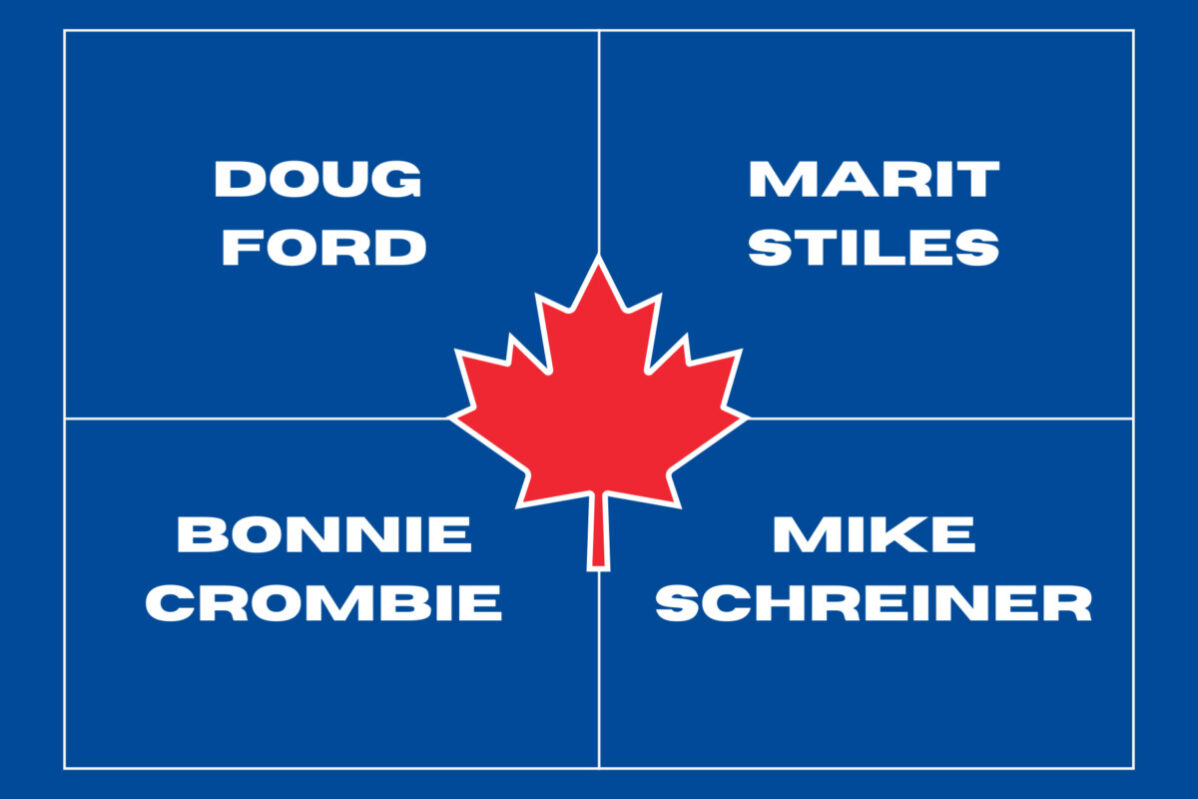Even conservatives think an election could have waited a year.
Originally elected in 2018, Doug Ford and the Provincial Conservative (PC) government easily won a majority against a deeply unliked Liberal government, led by then Premier Kathleen Wynne. The NDP party, which touts policies that are drowning in socialism, became the official opposition.
On Feb. 27, 2025, eligible voters in Ontario will go to the polls again, as Premier Ford has decided to call an early election.
This comes after months of speculation that Ford would call the election early, in an attempt to start a new term before the impending federal election. With polls still favouring a win by the Pierre Poilievre conservatives, many assume that Ford wants to try and get another term before voters – who allegedly want a checks and balance system, will vote for a left leaning provincial party since the federal one will lean to the right.
The election was officially called during the final week of January, using the threat of tariffs from US President Donald Trump as the reason for this election.
“The choice that people are going to have for the next 30 days will affect every aspect of their lives, and their kids’ lives, and their grandchildren’s’ lives for the next 20 to 30 years. We need the largest mandate in Ontario’s history to move this province forward,” said Ford when confirming the election would happen.
Despite the threats from our neighbour to the south, there was no reason to call this election.
While the threat of tariffs is currently on hold until March 2025, the simple fact that they are looming does not seem to be enough of a reason for Ford’s election call – considering the next provincial election in Ontario was not set to take place until 2026, any actions to combat a potential trade war could have been handled by the majority he has had since 2022.
This election right now may be a benefit to the current party in power, but it is by no means a necessity that Ontarians should deal with.
Having another mandate will certainly help Ford and his government – chances are with his declining popularity, this will be the last election he can ride to an easy victory – but it doesn’t seem right to spring a winter election on the population that is costing upwards of $189-million.
Putting aside this issue, provincial opposition party leaders Marit Stiles (NDP) and Bonnie Crombie (Liberals) want you to look at what they deem this government’s failures, the scandals, and general unlikability of Ford, when you head to the polls.
Of course, voters should not only pay attention to everything said by the candidates, but do their own research to understand the facts behind their promises.
Stiles for instance, has constantly disapproved of the Ford government’s decision to put beer in corner stores early, citing the “billion dollar cost” to accentuate how much of a waste she believes it to be.
It’s ironic that she is happy to rip into this deal considering early into her election campaign she promised to not only immediately allow trucks to use highway 407 for free, but also says she would negotiate with the group that owns the highway to buy it back. When the 407 was sold, it was done so for more than $3-billion. If Stiles intends to buy this back, it’s quickly estimated to cost upwards of $15-billion – on the low end.
When asked for a cost, Stiles simply said she did not want to divulge any information ahead of negotiations with the international group that owns the highway. Instead she went on with the usual campaign promises that this deal would be done. Even with no official numbers or plans for this idea yet, buying back the 407 and completely removing tolls may be worse than the “billion dollar beer boondoggle.”
Crombie has been no better with her attacks of the current government, blaming everything from the rising cost of inflation to the increase of food bank usage, on Ford.
Crombie, former mayor of Mississauga before replacing Wynne as the leader of the Ontario Liberals, has spent her time since winning in almost obscurity. Anytime there has been a reason to attack the government, she has not skipped a beat, but other than that she’s been relegated to the background of the province’s political sphere.
Promises from her party so far include a “plan to fix healthcare” in addition to bringing back rebates on electric vehicles – this is to help dwindling sales and encourage people to buy.
While her promises hit home for many people in the province, it should not be ignored that many of the problems she is blaming on the Ford government, can in some way be traced back to the wholly unsustainable influx of people coming into the country.
Finally, there’s Mike Schreiner (Green), a party which has never truly been relevant in any level of government, hardly being able to hold onto two seats.
Promises include the “Grow Ontario Plan” which looks to set out to protect farm land as he says “Ontario cannot continue to lose over 300 acres of farmland everyday, and we need to make sure our local farmers have the support they need to make a living.” He also promises to get rid of what he calls legislative poverty, saying “the government is forcing people with disabilities to choose between eating or having a roof over their heads.”
Despite what is said on the campaign trail, it’s always recommended that voters take the time to look into the issues and make informed decisions. A promise made during the campaign may sound good, but chances are what’s not being said speaks louder than everything else.
Early voting takes place from Feb. 20 to 22.
To find out more information, including polling stations, job opportunities and more, visit www.elections.on.ca.


